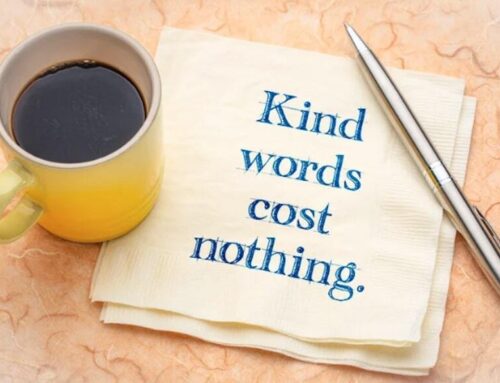
Let’s face it—conflict is as inevitable in the workplace as coffee spills and Monday morning blues. Whether it’s a clash of leadership styles, a disagreement over a work style, or simply a case of unique personalities rubbing each other the wrong way, conflict can drain productivity, dampen morale, and even lead to mental health issues. What if we told you that conflict doesn’t have to be a destructive force?
With the right conflict resolution strategies, workplace disagreements can be transformed into opportunities for growth, collaboration, and innovation. AllWin’s conflict resolution training equips individuals and teams with the skills they need to navigate the choppy waters of workplace disagreements. We’ll help you identify the different types of conflict in the workplace, understand the root causes, and find solutions that benefit everyone involved.
In this blog, we’ll dive into the common types of conflict in the workplace and share AllWin’s proven conflict resolution techniques to help you turn disagreements into stepping stones toward success.
The Fallout of Workplace Feuds: Why Conflict Resolution Matters
When conflicts arise in the workplace, the impact can ripple through individuals, teams, and the entire organization. Left unchecked, these disagreements can wreak havoc on productivity, morale, and even the bottom line.
Let’s delve into some of the specific ways the different types of conflict in the workplace can sabotage success and the role of leadership styles in resolving them.
Reduced Productivity and Trust Between Teams
It’s no secret that conflict is a major productivity killer. When employees are embroiled in disagreements, their focus shifts away from their tasks and toward the dispute at hand. This can lead to missed deadlines, sloppy work, and a general decline in performance.
Moreover, conflict can breed distrust among team members, making it difficult to collaborate effectively and achieve organizational goals. When trust is broken, employees may become less willing to share ideas, offer support, or take risks—all of which are essential for innovation and growth.
Time Thief: The Costly Impact of Conflict
Time is money, and conflict can be a major drain on both. Think of all the hours wasted on gossip, complaining, and trying to avoid interacting with certain colleagues. These precious minutes could be spent on productive tasks that actually move the needle forward.
In addition to the time wasted by individual employees, conflict can also consume valuable management resources. Leaders may find themselves spending countless hours mediating disputes, conducting investigations, and trying to restore harmony to their teams.
Stifling Innovation and Collaboration
A workplace rife with conflict is hardly a breeding ground for creativity and collaboration. When employees are preoccupied with disagreements, they’re less likely to brainstorm new ideas, challenge the status quo, or think outside the box.
Furthermore, failing to handle conflict can result in an environment of fear and defensiveness, making it difficult for team members to feel comfortable sharing their thoughts and opinions. This lack of psychological safety can stifle innovation and prevent the team from reaching its full potential.
AllWin recognizes the numerous challenges that leadership conflicts, personality clashes, or fundamental differences in work style can present. We also understand that these challenges can negatively impact the team’s overall performance, hinder company culture, and disrupt employees’ work-life balance.

Types of Conflict Based on the Source of Conflict
To effectively address the different types of conflict in the workplace, it’s crucial to understand their unique characteristics and triggers. By identifying the source of conflict, you can tailor your conflict management approach and implement strategies that promote resolving conflict and foster collaboration.
Let’s explore the common workplace conflicts based on their source:
Role Conflict
Role conflict occurs when employees have conflicting expectations about their roles and responsibilities. This can stem from unclear job descriptions, overlapping responsibilities, or a lack of communication between managers and team members.
For example, a marketing manager might feel pulled in different directions if they’re expected to both develop creative campaigns and manage the department’s budget. This type of conflict can lead to confusion, frustration, and even resentment among employees.
To resolve role conflict, it’s essential to establish clear expectations and boundaries for each role. This involves:
- Creating detailed job descriptions
- Defining responsibilities
- Ensuring that everyone understands their role in the bigger picture
Active listening and open communication between managers and employees can also go a long way in preventing and resolving role conflict.
Task Conflict—When Work Styles Collide
Task conflict arises when employees disagree about how to approach a particular task or project. This type of conflict can be healthy if it leads to constructive debate and a thorough evaluation of different approaches. However, if not managed effectively, task conflict can escalate into personal attacks and a breakdown in communication.
For instance, a team working on a marketing campaign might experience task conflict if some members prefer a data-driven approach while others advocate for a more creative, intuitive approach.
To resolve task conflict, it’s crucial to foster a culture of open communication and respect for different working styles. Encourage team members to share their ideas and perspectives and facilitate discussions that focus on finding solutions that benefit the project as a whole. An emphasis on collaboration and a shared commitment to the task at hand can transform task conflict into a catalyst for innovation and problem-solving.
Resolving Personality Conflict Between Coworkers Within a Workplace
Personality conflict is perhaps the most challenging type of workplace conflict to resolve. It stems from fundamental differences in personality, values, or communication styles. These clashes can manifest as:
- Value conflict
- Petty disagreements
- Passive-aggressive behavior
- Outright hostility
- Personality clashes
- Cultural differences
Personality conflicts can arise when an introvert and an extrovert might clash over the ideal work environment or colleagues from different cultural backgrounds might misinterpret each other’s intentions.
Relationship conflict in the workplace requires a nuanced approach that addresses both the emotional and practical aspects of the situation. Encourage empathy and understanding between the conflicting parties. Help them to see things from the other person’s point of view and find common ground.
In some cases, it might be necessary to provide conflict coaching or mediation to help employees develop the communication and interpersonal skills needed to work together effectively.
Additionally, the leadership style should foster a workplace culture that values diversity and inclusivity as a means to help mitigate personality clashes and promote harmonious relationships.

Types of Conflict Based on Who’s Involved
Workplace conflict isn’t always a simple matter of disagreements over tasks or roles. It can also arise from clashes between individuals, internal struggles, and friction between different groups within an organization.
Understanding these common workplace conflicts is key to developing effective conflict resolution models and fostering a more harmonious work environment.
Understanding and Managing Interpersonal Conflicts
Interpersonal conflicts occur between two or more individuals due to a variety of factors, such as:
- Personality differences
- Communication styles
- Language barriers
Conflicts such as these can be particularly challenging because they often involve personal feelings and emotions. For example, a disagreement between a manager and an employee over a decision might escalate into a personal attack if not addressed promptly. Or, colleagues from different backgrounds might misunderstand each other’s intentions, leading to tension and conflict.
Resolving interpersonal conflicts requires a combination of mutual respect, open communication, and a willingness to find common ground. Encourage employees to listen to each other’s perspectives and try to see things from the other person’s point of view.
If necessary, conflict coaching or mediation should be provided to help individuals develop the skills needed to communicate effectively and resolve their differences. By fostering a culture of respect and understanding, you can help prevent interpersonal conflicts from escalating and damaging relationships.
Recognizing and Addressing Intrapersonal Conflicts
Intrapersonal conflicts are internal struggles that individuals experience within themselves. These conflicts can arise from a variety of sources, such as conflicting values, competing priorities, or a lack of clarity about one’s goals or identity. For example, an employee might experience intrapersonal conflict if they’re torn between their desire for career advancement and their need for work-life balance.
While intrapersonal conflicts might seem like a personal matter, they can significantly impact an individual’s performance and well-being in the workplace. When employees are grappling with internal conflicts, they may become distracted, stressed, or demotivated. This can lead to a decline in productivity, increased absenteeism, and even burnout.
To resolve intrapersonal conflicts, it’s critically important for individuals to develop self-awareness and emotional intelligence. Encourage self-reflection and provide resources such as coaching or counseling to help employees identify the root causes of their internal struggles and develop strategies to resolve them. By prioritizing employee well-being, you can create a more supportive work environment where individuals feel empowered to address their internal conflicts and healthily resolve them.
Resolving Conflicts Between Different Groups Within a Workplace
Intergroup conflicts occur between different teams or departments within an organization. These conflicts often arise due to competition for resources, differing opinions on how to achieve goals, or simply a lack of understanding between groups. For example, the sales team might clash with the marketing team over lead generation strategies, or the engineering department might butt heads with the design team over product specifications.
To resolve intergroup conflicts, it’s essential to promote collaboration and communication between teams. Encourage cross-functional projects and create opportunities for team members to interact and get to know each other. Establish clear goals and expectations for each team and ensure that everyone understands how their work contributes to the overall success of the organization.
A team leader who appears so hands-off that their co-workers don’t know what is expected of them can contribute to poor communication among the team. Conflict can also arise when team members have different communication styles and aren’t able to understand each other.
Transforming Conflict Into Collaboration With AllWin
Conflict is a natural part of any workplace, but it doesn’t have to be a destructive force. By understanding the different types of conflict in the workplace—from clashes over tasks and roles to interpersonal disputes and internal struggles—you can develop effective conflict resolution steps and create a more harmonious and productive work environment.
Remember, everyone comes to the table with different perspectives, life experiences, and cultural differences. By embracing these differences and fostering open communication, you can turn potential conflicts into opportunities for growth and collaboration.
AllWin Conflict Resolution Training is here to help you navigate the complexities of workplace conflict. Our customized training programs equip individuals and teams with the skills they need to identify, address, and resolve conflict constructively. Whether you’re dealing with relationship conflict in the workplace or a systemic issue affecting the entire organization, AllWin can provide the guidance and support you need to create a workplace where everyone feels valued, respected, and empowered to contribute their best.
Contact AllWin today to learn more about our conflict resolution training programs and start building a more harmonious workplace.

About the Author: Jeremy Pollack
Jeremy Pollack, Ph.D. is the founder of Defuse De-Escalation Training, a sister company of Pollack Peacebuilding Systems, the largest workplace conflict resolution training and consulting firm in North America. He actively participates in de-escalation training and consulting initiatives for a variety of industries, from Fortune 500 companies to well-known non-profits. Besides his Ph.D. in Psychology from Grand Canyon University, Jeremy holds a Master’s Degree in Negotiation, Conflict Resolution, and Peacebuilding (NCRP) from California State University, Dominguez Hills. He is also a member of several organizations focused on conflict resolution and peacebuilding, such as the Peaceful Leadership Institute, the Association for Conflict Resolution, and the Division 48 (Division of Peace Psychology) of the American Psychological Association. Jeremy also holds several certifications in the field of training and coaching: he is a Certified Organizational Development Coach (CODC™), a Certified Clinical Trauma Specialist-Individual (CCTS-I™), and an Associate Certified Coach (ACC) under the International Coaching Federation.



